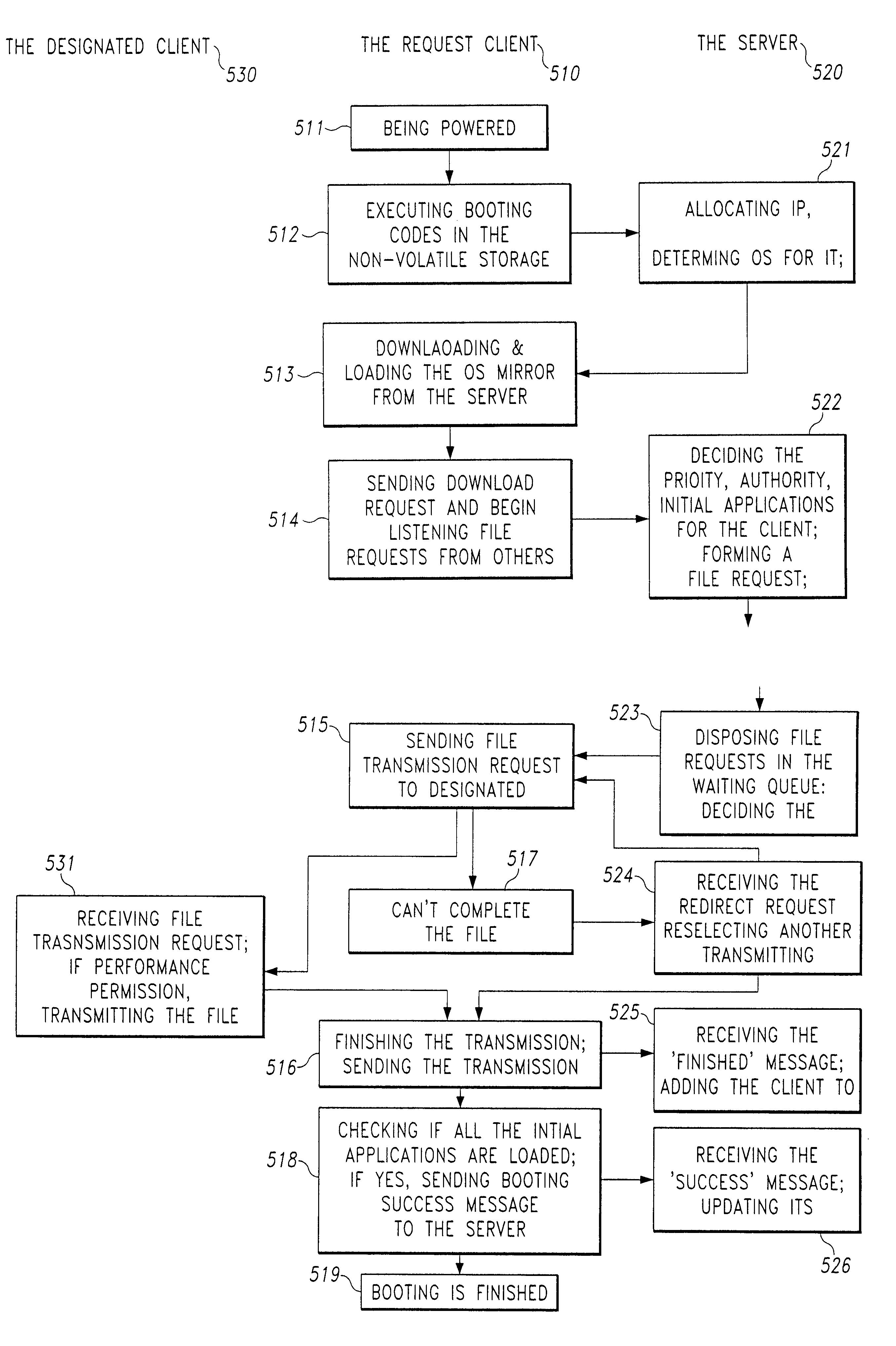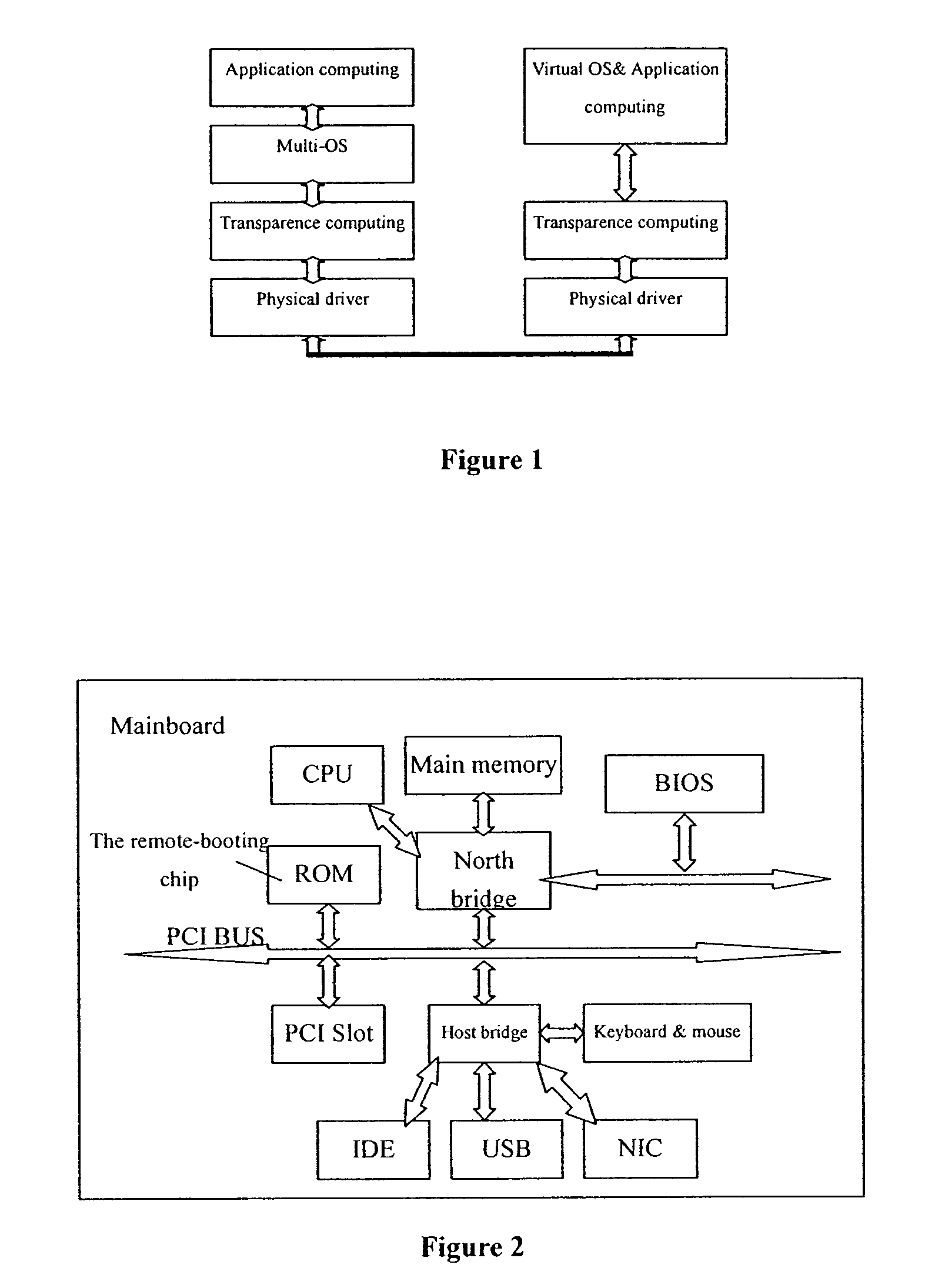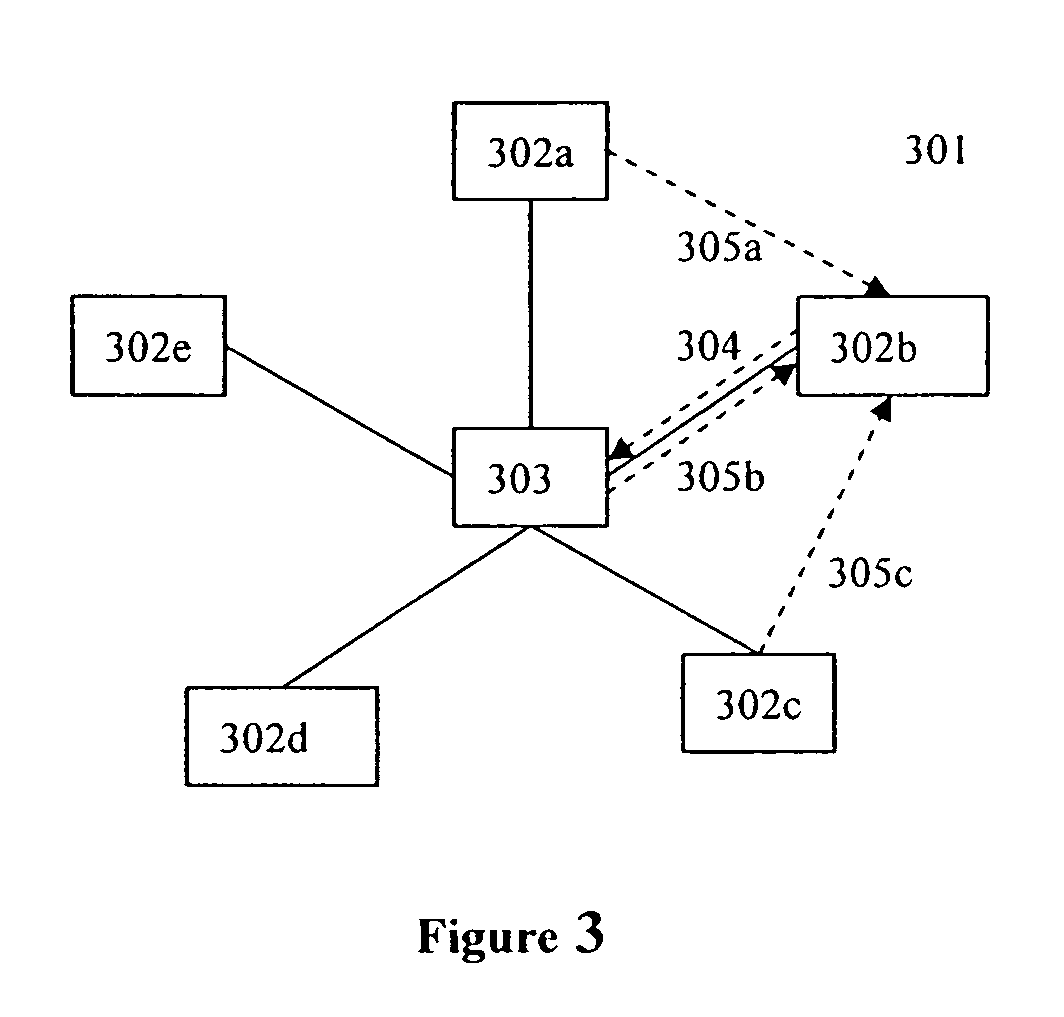Method and computing system for transparence computing on the computer network
a computing system and computer network technology, applied in the field of computing system for transparence computing on the computer network, can solve the problems of inability of machines to carry on corresponding application computing or run corresponding software systems, difficulty in interconnecting and intercommunicating with the universal computer network system such as the internet, and increase the complexity of software and oss, so as to reduce the over-dependence of the traditional nc system on servers, improve performance, and improve interoperability. ,
- Summary
- Abstract
- Description
- Claims
- Application Information
AI Technical Summary
Benefits of technology
Problems solved by technology
Method used
Image
Examples
second embodiment
[0034]As for the invention, an independent ROM as the remote booting chip is set in the client, storing the codes of the ETHERBOOT protocol. Similar to the above-mentioned example, a Linux system is installed on one of the servers as its operating system. A DHCP server, a TFTP server and an NFS server are pre-installed on the server. After being powered on, the client first uses a DHCP service to get its IP address from the server, then downloads and loads the OS kernel mirror, shifting the control, and loading the root file system mirror (including initial applications) through NFS protocol.
third embodiment
[0035]In the invention, an independent ROM as the remote booting chip is set in the client, storing the codes of the RPL (Remote Program Load) protocol. A Windows 2000 server is installed on one of the servers as its OS in advance with the remote booting service of the Windows NT4 because the Windows 2000 server cannot provide support for remote booting by itself. After the client is powered on, it uses the RPL protocol to download and load the DOS or the Windows 3.2 OS mirror, and initial applications. After shifting the control, it may use METAFRAME to connect to servers for resource henceforth.
fourth embodiment
[0036]In the invention, the codes of PXE are stored in an independent ROM as the remote booting chip on the mainboard. A Windows 2000 Server system is installed on one of the servers as its operating system. Both DHCP and PXE-PDK services are preset on the server. A sample client mirror is produced as follows: 1) temporarily connect a harddisk to the IDE interface of the client, 2) install on it the Windows 98 OS and initial application programs as done with a normal PC, 3) set and make the mirror file according to the LITENET. After that, the mirror is stored on the server. After being powered on, the client downloads and loads the mirror by the PXE. By using NET USE, the shared file of Windows 2000 server can be mapped into a network virtual disk for each client, therefore providing the data storage service for the Windows 98 system
PUM
 Login to View More
Login to View More Abstract
Description
Claims
Application Information
 Login to View More
Login to View More - R&D
- Intellectual Property
- Life Sciences
- Materials
- Tech Scout
- Unparalleled Data Quality
- Higher Quality Content
- 60% Fewer Hallucinations
Browse by: Latest US Patents, China's latest patents, Technical Efficacy Thesaurus, Application Domain, Technology Topic, Popular Technical Reports.
© 2025 PatSnap. All rights reserved.Legal|Privacy policy|Modern Slavery Act Transparency Statement|Sitemap|About US| Contact US: help@patsnap.com



